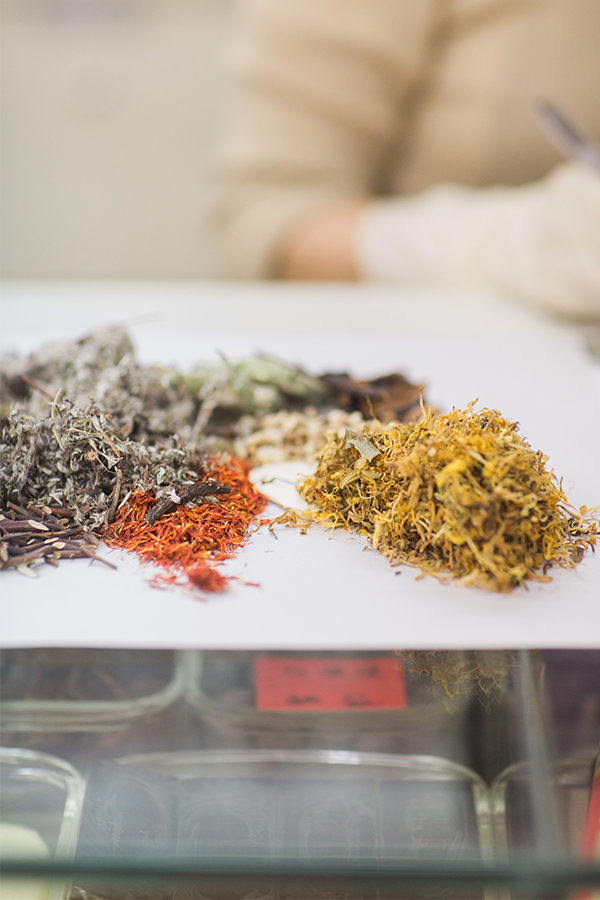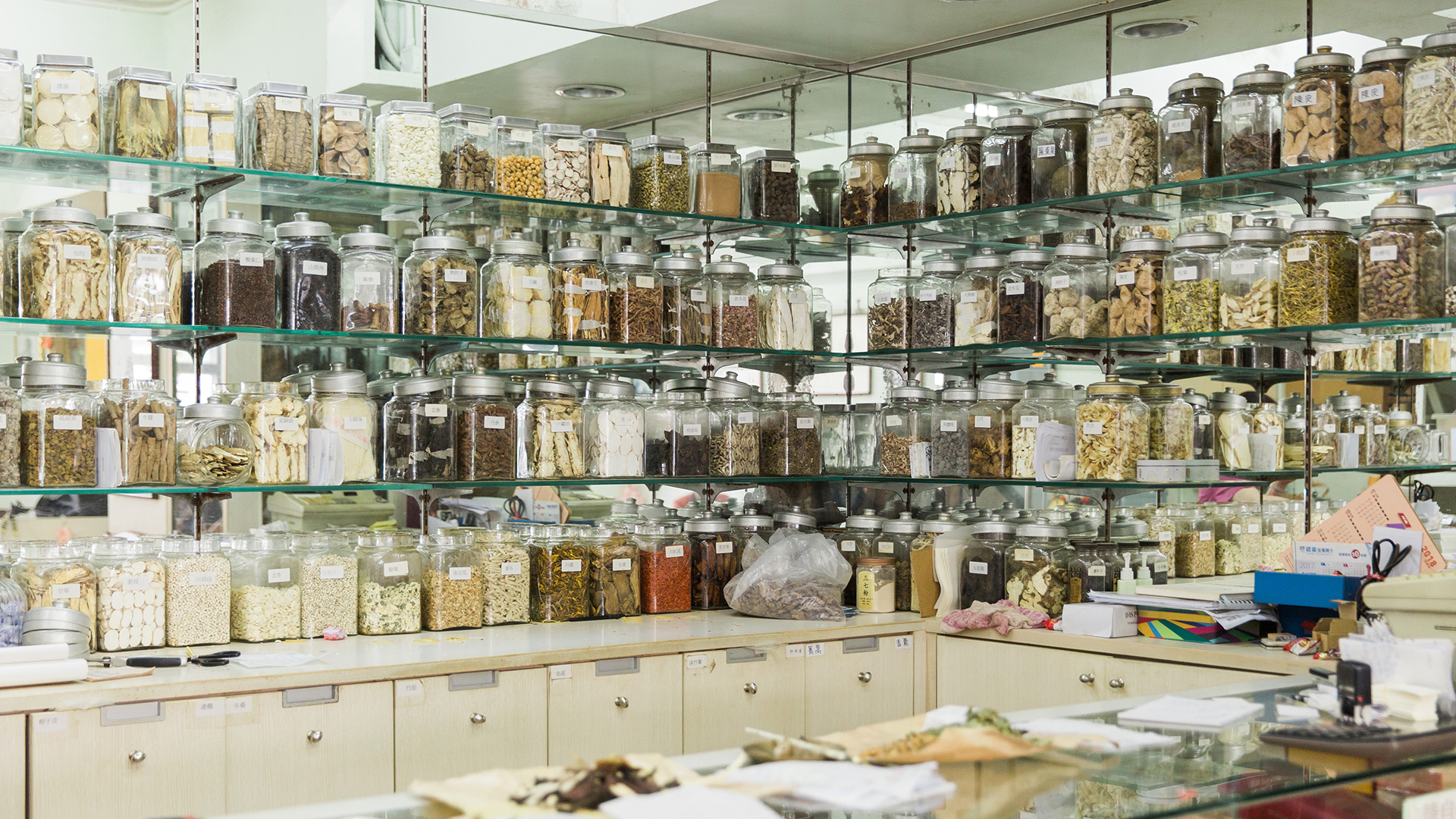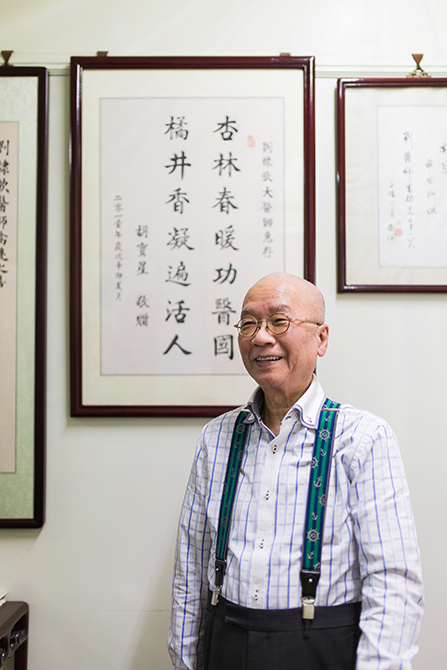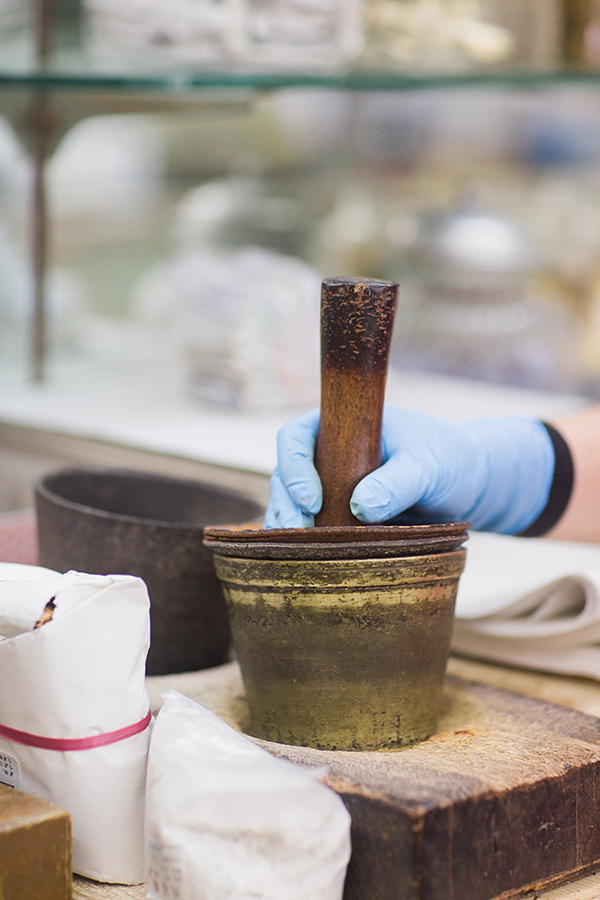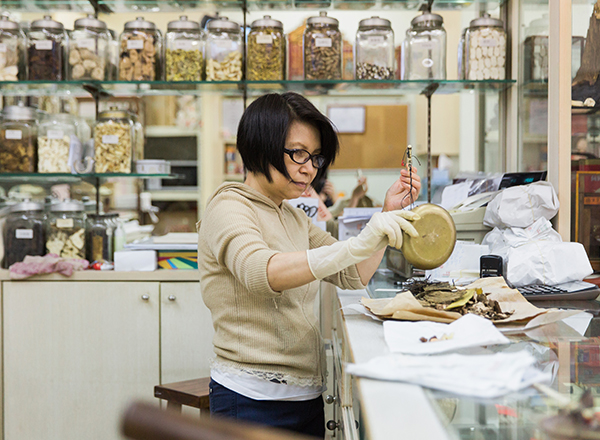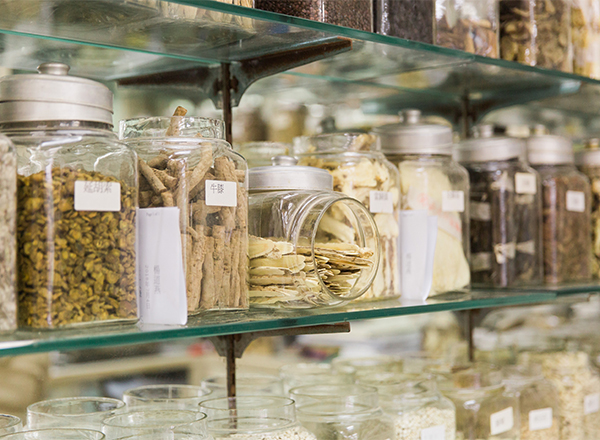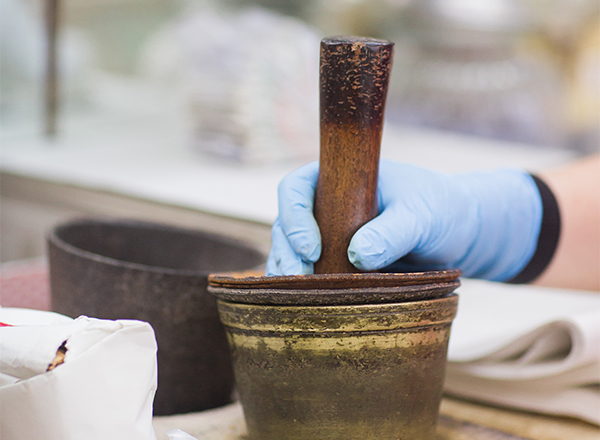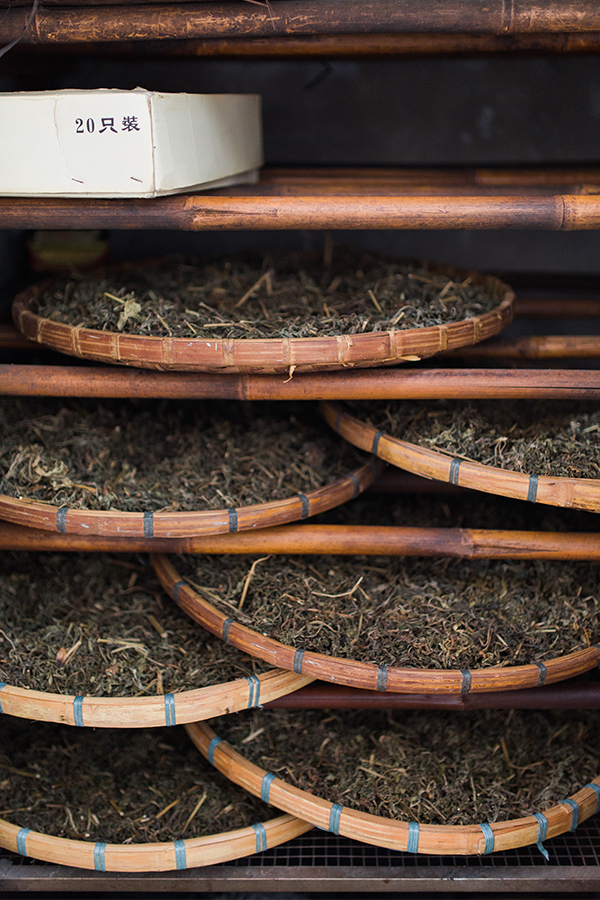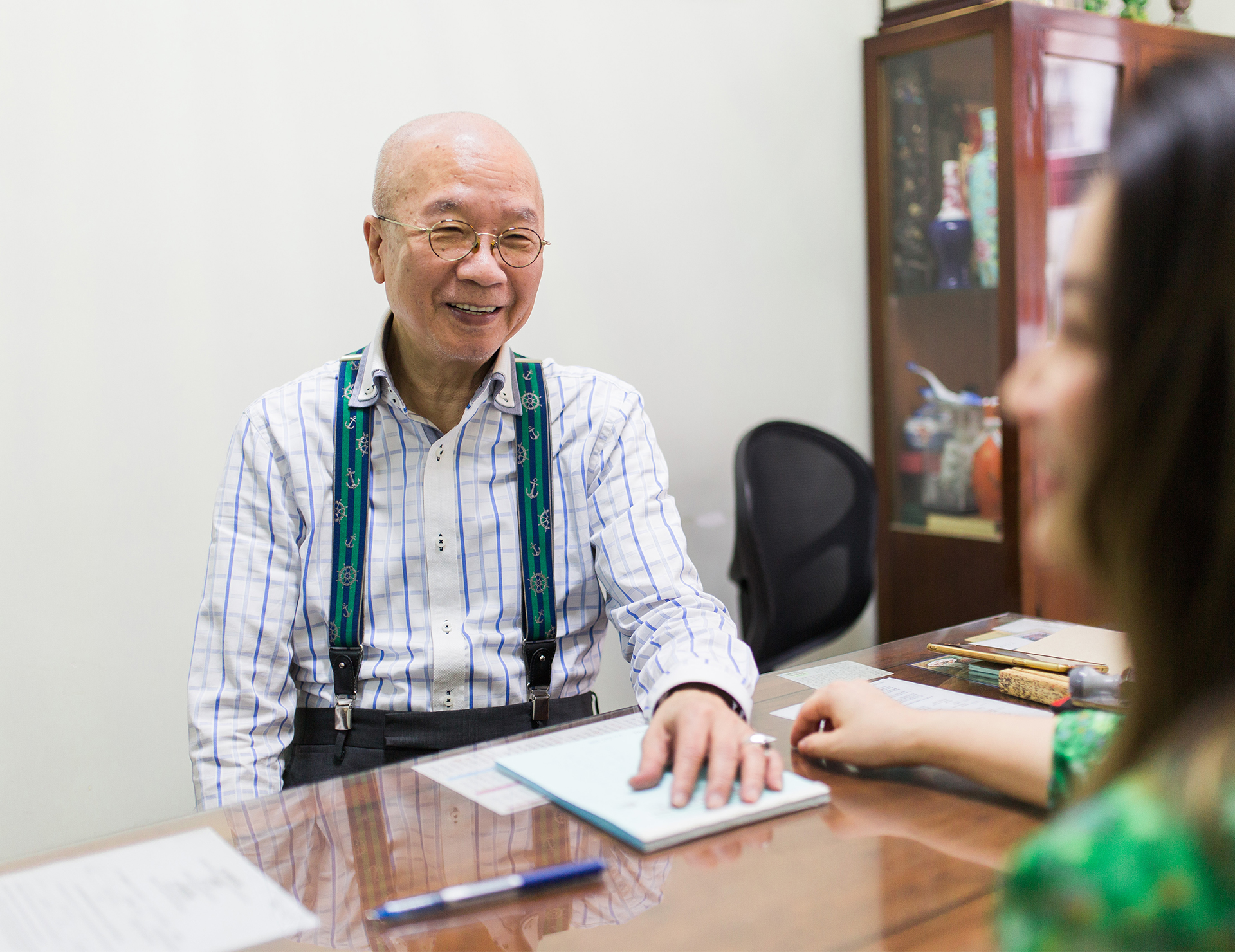“Chinese medicine was able to provide treatment for any disease, not just act as a wellness booster…”
Dr Lau took lessons in Western medicine in Hong Kong University 30 years ago, and highlights that Western doctors are also well-versed in Chinese medical concepts. “It’s not about combining the two, but understanding the theories,” he says.
Now, with no shortage of courses or places to learn Traditional Chinese Medicine, Dr Lau continues his studies in Hong Kong to keep up to date. “The younger generation has all this available at the press of a button, but we needed to memorise verses for each prescription.”
He pauses to recite a decoction, then goes on to explain: “The verses contain all the herbal medicines needed, how to process them, what goes in first and what comes last; we needed to remember all of it. We old-timers know it by heart, of course, but now we need to keep updating ourselves,” he says, gesturing at a computer. “See, even our records have been digitised!”
Though people used to strongly differentiate between Chinese and Western medicinal treatment, Dr Lau has seen elements of them merge. “Chinese medicine was able to provide treatment for any disease, not just act as a wellness booster,” Dr Lau explains. But for some, this is an added value of traditional Chinese medicine. “I see Western doctors for immediate cures but this is for maintaining my health. I’ve been feeling quite tired so I went to see Dr Lau this morning for some detox medicine – this is the kind of stuff Western doctors can’t do,” shares Clara.
